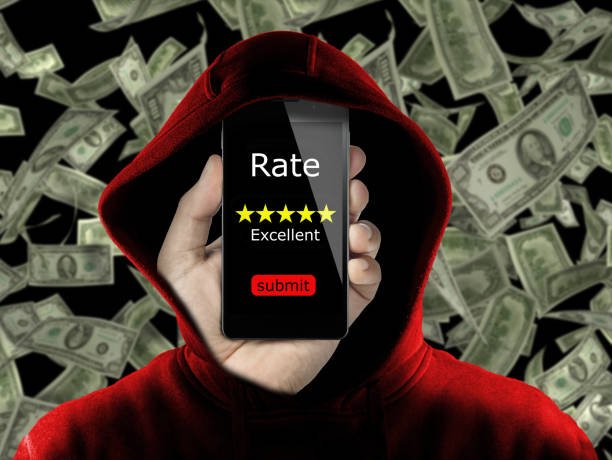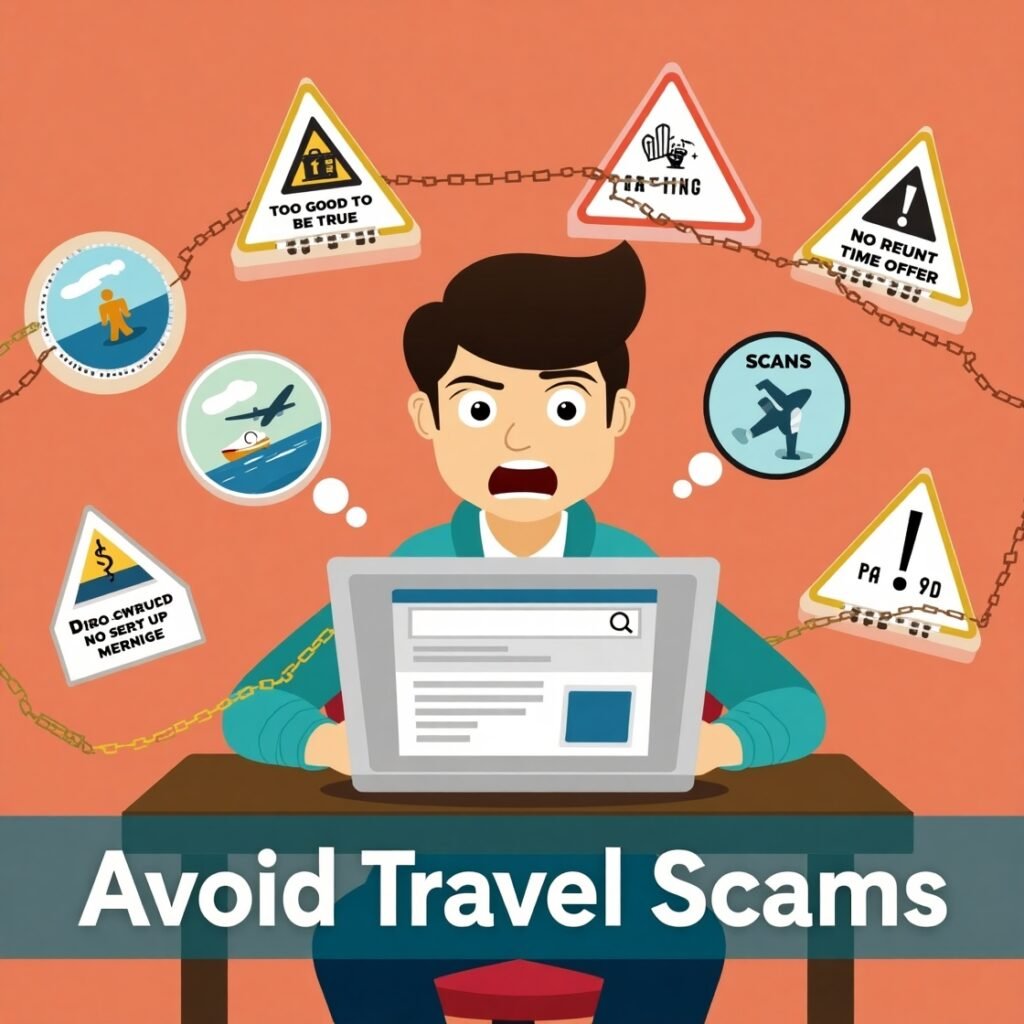The thrill of finding an unbelievably cheap vacation deal can be intoxicating. A luxury resort for the price of a budget hotel? Last-minute flights to a tropical paradise for less than a dinner out? In our quest for affordable adventures, it’s easy to get swept up in the excitement. But as travel becomes more accessible, sophisticated travel scams are on the rise, specifically targeting budget-conscious travelers. Staying alert is your best defense against fake travel deals. This guide will walk you through the top travel fraud warning signs for 2025, ensuring your dream vacation doesn’t turn into a costly nightmare.
Why Travel Scams Are on the Rise in 2025
The post-pandemic travel surge continues, with more people booking trips online than ever before. Scammers are capitalizing on this boom, using social media and increasingly realistic fake websites to lure in victims. They know travelers are eager to make up for lost time and are actively hunting for the best prices. This desperation creates the perfect environment for fraud. From fake airline tickets on Facebook Marketplace to elaborate vacation rental schemes, staying vigilant is key to ensuring your travel safety in 2025.
The 10 Telltale Signs of a Travel Scam
Here are the most common red flags to watch for. Spotting even one of these should make you pause and investigate further.
1. The Price is Too Good to Be True
Scammers bait their hooks with offers that seem impossibly good, like a $500 all-inclusive week in the Maldives. They prey on our desire to snag a once-in-a-lifetime deal, making us lower our guard. While legitimate flash sales exist, an offer that is drastically lower than every other competitor is a major travel fraud warning sign.

- How to Avoid It: Always compare prices. Do a quick search for the same hotel or flight on well-known travel sites like Expedia, Booking.com, or directly with the airline. If your “deal” is an outlier by a massive margin, it’s likely a scam.
2. No Verifiable Contact Information
A legitimate business wants to be found. Scammers hide. If the website lists only a contact form or a generic email address (e.g., TravelDeals@gmail.com) with no physical address or working phone number, be suspicious.

- How to Avoid It: Search the company’s name on Google Maps to see if the listed address is a real office or just an empty lot. Look for a professional presence on LinkedIn. Call the phone number provided to see if a real person answers.
3. Unsecured Website or Suspicious URL
Your browser gives you a crucial clue about a site’s safety. A secure website’s URL begins with https and shows a padlock icon in the address bar. This indicates the data you send (like your credit card details) is encrypted. Scam sites often use http or have strange, misspelled domain names trying to imitate real ones (e.g., Expedia-Deals.co instead of Expedia.com).
- How to Avoid It: Never enter payment information on a site that is not
httpssecure. Double-check that the domain name is spelled correctly and is the official one for the company you think you’re dealing with.
4. Urgent Booking Pressure or Countdown Timers
“Only 2 seats left at this price!” “Offer expires in 2:00 minutes!” Scammers use high-pressure sales tactics to create a false sense of urgency. They want to rush you into making an emotional decision before your logical brain has time to spot the red flags of their booking scams.
- How to Avoid It: Take a deep breath and slow down. Legitimate deals might be time-sensitive, but they won’t evaporate in 90 seconds. Never let a countdown timer force you to hand over money without complete verification.
5. Vague Itinerary or No Paper Trail
After you pay, you should immediately receive detailed confirmation emails with booking numbers, an itemized receipt, and a clear itinerary. If the seller is vague about details or you receive nothing but a simple “payment received” message, something is wrong.
- How to Avoid It: Before paying, insist on seeing a detailed, itemized itinerary. After paying, if you don’t receive official confirmation documents within an hour, contact your bank and the “company” immediately.
6. Request for Wire Transfers, Gift Cards, or Crypto Payments
This is one of the biggest travel fraud warning signs. Scammers love untraceable payment methods. If a seller insists you pay via a bank wire transfer (like Zelle or Western Union), cryptocurrency, or by sending them gift card codes, it is almost certainly a scam.
- How to Avoid It: Always use a credit card for major travel purchases. Credit cards offer robust fraud protection and the ability to dispute charges (a “chargeback”). PayPal’s “Goods & Services” option is also a secure alternative.
7. Fake Reviews or Testimonials
Scam websites will often feature glowing, five-star reviews. The problem? They are the only place these reviews exist. The testimonials may sound generic and lack specific details about the trip.

- How to Avoid It: Be a skeptic. Cross-check the company’s reputation on independent, third-party review sites like Trustpilot, TripAdvisor, or even the Better Business Bureau (BBB). Search for “[Company Name] + scam” to see if others have been burned.
8. No Social Media Presence or Generic, Empty Pages
Most legitimate travel companies have an active social media presence with a long history of posts, customer engagement, and real followers. Scam operations often have brand new, empty, or generic-looking social media pages with stock photos and few followers.
- How to Avoid It: Check the company’s social media pages. Look at the age of the account, the frequency of posts, and the quality of the interactions in the comments. A history of engagement is a sign of legitimacy.
9. Spelling Errors and Unprofessional Website Design
While not as foolproof as it once was, a website filled with glaring spelling mistakes, grammatical errors, and low-quality, pixelated images often indicates a hastily built scam operation. It shows a lack of professionalism and care.
- How to Avoid It: Trust your gut. If a website looks amateurish or sloppy, treat it with suspicion. You can use free tools like ScamAdvisor to get an instant report on a website’s potential risk level.
10. Offers That Skip the Usual Booking Process
A common scam on social media involves a “travel agent” telling you they have a private, exclusive deal that can only be booked by sending them a direct message on Instagram or WhatsApp and paying them directly.
- How to Avoid It: Stick to official channels. Never finalize a booking or send money for a major trip via social media DMs, text messages, or unofficial apps. Always complete transactions through a secure, official website or platform.
How to Protect Yourself from Travel Scams
Here is a quick checklist to keep you safe:
- Book with Reputable Sources: Stick to well-known booking platforms, certified travel agents, or the official websites of airlines and hotels.
- Do Your Research: A five-minute Google search can save you thousands of dollars. Vet every company and every “deal.”
- Use a Credit Card: It is your single best protection against fraud.
- Keep Records: Save screenshots of the offer, all email communications, and transaction receipts until your trip is successfully completed.
Bonus Tip: Protect your identity while traveling by using an RFID-blocking travel wallet. Scammers can use hidden devices to steal your card data in crowded places like airports or tourist hubs. These wallets are designed to block unauthorized RFID scans, adding an extra layer of security for peace of mind.
What to Do If You’ve Been Scammed
If the worst happens, act immediately:
- Contact Your Bank or Credit Card Company: Report the fraud and ask to initiate a chargeback. If you used a debit card or wire transfer, the chances of recovery are lower, but you must still report it.
- Report It to the Authorities: File a report with your local police and your country’s consumer protection agency (for example, the Federal Trade Commission (FTC) in the U.S.).
- Warn Others: Leave reviews on Trustpilot, Google, and other platforms explaining the scam. This helps prevent others from falling victim.

Want more scam-free, elite travel insights? Visit eliteonabudget.com for safe and affordable travel ideas that you can trus
